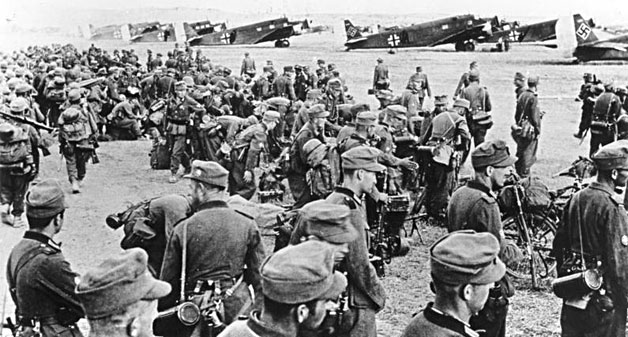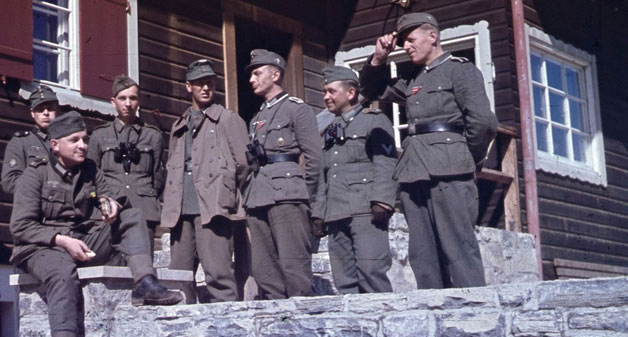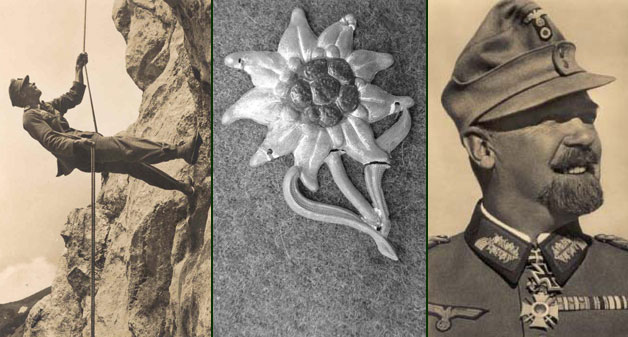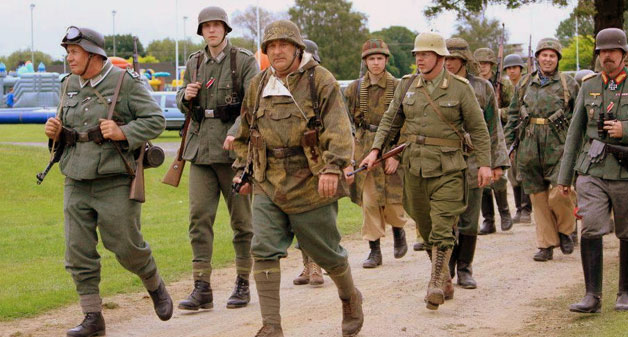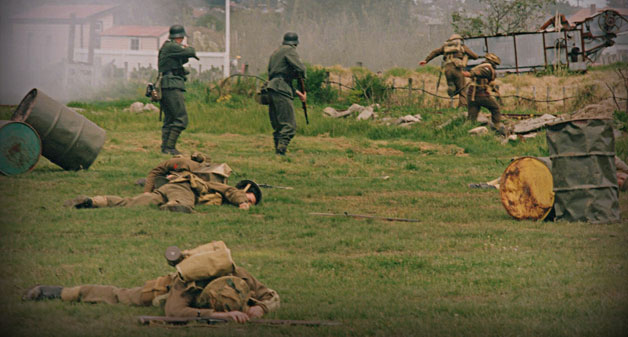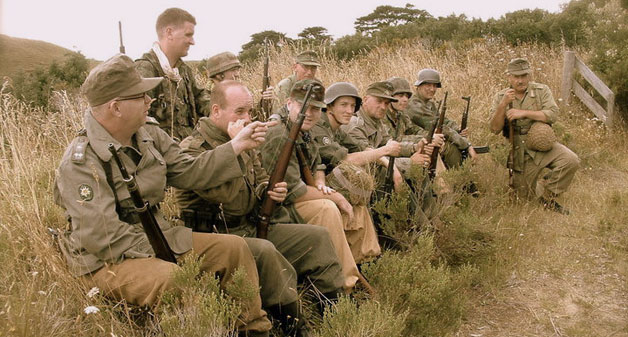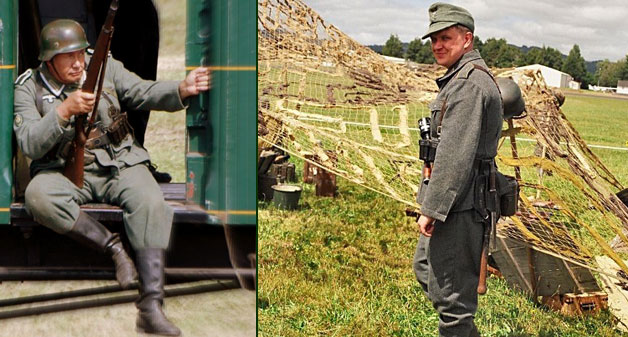
5.Gebirgsjäger-Division,
100th Gebirgsjäger regiment
Unit History

The 5.Gebirgsjäger-Division was intially formed in the Autumn of 1940 with the 100.Gebirgs-Regiment detached from the 1. Gebirgsjäger -Division.
In March 1941, the division moved into the Balkans and took part in the invasion of Greece. The unit was then selected to be airlifted onto Crete to reinforce the Fallschirmjäger during the airborne assault of the island. During this operation the Gebirgstruppen distinguished themselves and were able to break the deadlock between the paratroopers and the Commonwealth defenders. The Division remained on occupation duties before being returned to Germany for a rest and refit.
During March 1942 the division was relocated to positions south-west of Leningrad in the northern part of the Eastern Front. The division was used to plug the line where ever there was a weakness. It served in until early 1943 when it was posted to Italy. On 15 March 1943 Schnelle-Abteilung 95 was attached to the division and on 23 December 1943 it was split into Aufklärungs-Abteilung 95 and Panzerjäger-Abteilung 95. While in Italy the 5th Div was positioned on the "Gustav Line" near Monte Cassino and involved in holding the line in three bitter campaigns of the Allies to seize the high ground barring the route North. The division was involved in the battles for Rome and the rearguard actions in the retreat to the Gothic Line. The division was then transferred north to the border between France and Italy in late 1944. The division was captured by the Americans near Turin on 29 April 1945.
Campaign
- Greece, Crete 1941
- Occupation of Crete 1941-1942
- Eastern Front 1942-1943
- Italian Front 1943-1944
- Western Alps Front 1944-1945
Service History
|
Dates |
Korps |
Armee |
Armeegrupp |
Area |
| 10.40 | forming | Wehrkreis XVIII | - | Germany |
| 11.40 - 2.41 | XVIII | 2. Armee | C | Germany |
| 3.41 - 10.41 | XVIII | 12. Armee | - | Greece, Crete |
| 11.41 | refreshing | BdE | Wehrkreis V | Germany |
| 12.41 - 3.42 | BdE | Wehrkreis VII and XVIII | - | Germany |
| 4.42 | I | 18. Armee | Nord | Leningrad, Volkhov |
| 5.42 - 7.42 | L | 18. Armee | Nord | Leningrad, Volkhov |
| 8.42 | XXVIII | 18. Armee | Nord | Leningrad, Volkhov |
| 9.42 | XXVI | 18. Armee | Nord | Leningrad, Volkhov |
| 10.42 | XXVI | 11. Armee | Nord | Leningrad, Volkhov |
| 11.42 | XXX | 18. Armee | Nord | Leningrad, Volkhov |
| 12.42 - 3.43 | LIV | 18. Armee | Nord | Leningrad, Volkhov |
| 4.43 - 11.43 | XXVI | 18. Armee | Nord | Leningrad, Volkhov |
| 12.43 | reserve | 10. Armee | C | Upper Italy |
| 1.44 - 5.44 | XIV | 10. Armee | C | Italy (south of Rome) |
| 6.44 - 7.44 | LI | 10. Armee | C | Italy |
| 8.44 | reserve | Armee Ligurien | C | Western Alps |
| 9.44 - 4.45 | LXXV | Armee Ligurien | C | Western Alps |
Organization on 1 January 1941
I/,II/,III/Gebirgsjäger-Regiment 85
I/,II/,III/Gebirgsjäger-Regiment 100
I/,II/,III/,IV/Gebirgs-Artillerie-Regiment 95
Aufklärungs-Abteilung 95
Panzerjäger-Abteilung 95 (mot)
Gebirgs-Pionier-Bataillon 95
Nachrichten-Abteilung 95
Nachschubtruppen 95

5th Division
100th Gebirgsjäger Regiment
2nd Battalion
6th Kompanie
The Gebirgsjägers are based on an impression of German troops fighting in Crete and in Italy.
"The Gebs" as we are known, have a strength of veteran re-enactors and a love of authentic German style cuisine. The Gebs were one of the early Axis units to be re-enacted, and we set the pace early by undertaking an abseiling course, constructing a pak gun, adopting motorisation with motorbike and side car and of course adding momentum to any attack. The standard unit weapon is the Mauser K98, supplemented by the MP43/44 and when available MG34/42. Often the Gebirgsjäger of W.W.2 preferred long range weapons, that said, the Gebs, like our FJ comrades have a fondness for side arms as a wily last ditch defence.
